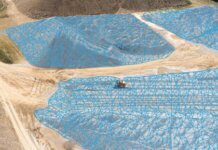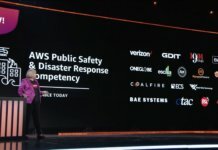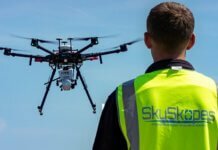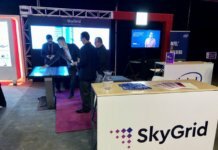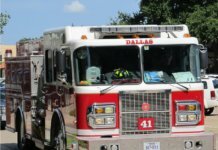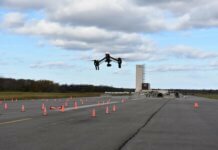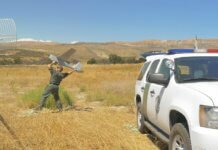 With a brand-new Section 333 exemption and blanket Certificate of Waiver or Authorization (COA), Lexington, N.C.-based Wilson Security Agency is the first and only detective agency to be authorized by the Federal Aviation Administration (FAA) to commercially fly drones in the U.S.
With a brand-new Section 333 exemption and blanket Certificate of Waiver or Authorization (COA), Lexington, N.C.-based Wilson Security Agency is the first and only detective agency to be authorized by the Federal Aviation Administration (FAA) to commercially fly drones in the U.S.
Company owner and founder Darrell Wilson tells Unmanned Aerial Online that he has been flying unmanned aerial vehicles (UAVs) non-commercially for two years, but with the FAA authorization, he will be able to incorporate the service into his business operations.
Wilson says he wrote the petition for exemption himself, submitted it in mid-February and received the OK roughly three months later. Considering the FAA had not granted an exemption of this type, the agency’s deciding to approve his came as a bit of a shock, he says.
The petition states specifically that he will use the DJI Phantom 2 Vision quadcopter to “perform aerial acquisitions and research throughout areas of the United States, in support of government entities, private investigations, court-appointed investigations, evidentiary video and photographs of crime scenes, and crime scene direction mapping.”
This mapping, he says, could involve flying the UAV in accordance with “any kind of criminal case that involves travel”: e.g., a robber who makes his way across town before getting caught by police.
Or, in the case of a traffic accident, for example, Wilson explains that he can send the aircraft over the scene for about half an hour and get an estimate of the travel conditions shortly after the accident happens. 
To get to a location, Wilson notes, he can hop on his motorcycle, which includes a specially designed holster to fit his drone.
For the court-appointed investigations, the exemption says, the UAV can “create critical aerial evidence of a wider area than could be done on the ground.” And for the private investigations, the aircraft can “aid in property inspections and crime-scene evidence.”
Wilson stresses that he will not be operating the UAV for any “domestic investigations” or any application that may pose a privacy concern to the public.
However, he explains, when you combine a UAV with a camera and a GPS, you’re automatically going to create “problems with the public” due to the negative stigma often surrounding the technology.
“The perception is that you’re snooping and you’re violating privacy laws,” Wilson says. “That’s not the case at all.”
Wilson, a licensed private investigator since 1982 and owner of a GPS tracking business, views UAVs as a significantly beneficial tool for his line of work.
“If you think about it from an investigative standpoint, there are a lot of avenues in which to use it,” he explains.
He plans to submit an amended exemption to be authorized to fly the H109S UAV from Hubsan, in addition to the Phantom 2 Vision. Being a Hubsan dealer, he notes, Wilson is not just the only private detective agency with an FAA commercial exemption, but also the only private detective agency with a dealership to sell UAVs.
Currently, Wilson says, he is conducting only non-commercial work with his unmanned aircraft, including flight tests at his 25-acre farm, but soon plans to bring the blossoming technology to one of the oldest detective agencies in North Carolina.
 Photo: Wilson and the Phantom 2 Vision at his farm in Lexington, N.C.
Photo: Wilson and the Phantom 2 Vision at his farm in Lexington, N.C.


